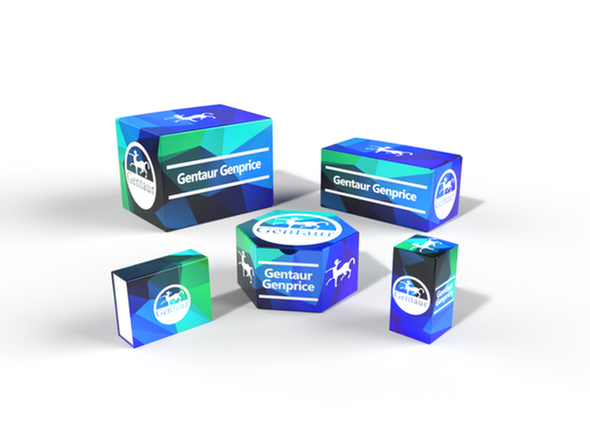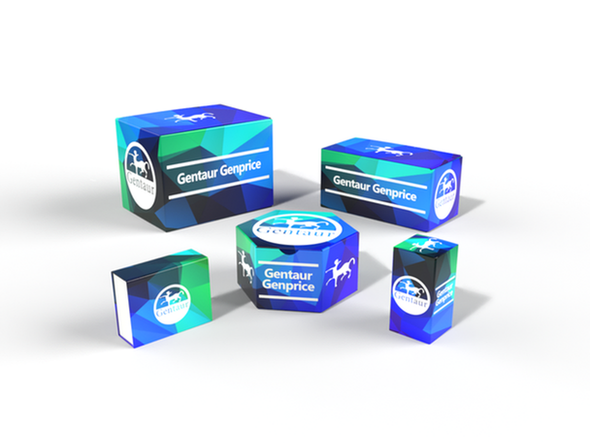Description
ARHB Antibody | 56-309 | Gentaur UK, US & Europe Distribution
Host: Rabbit
Reactivity: Human
Homology: Predicted species reactivity based on immunogen sequence: Bovine, Mouse, Rat
Immunogen: This ARHB antibody is generated from rabbits immunized with a KLH conjugated synthetic peptide between 104-137 amino acids from the Central region of human ARHB.
Research Area: Cancer, Signal Transduction
Tested Application: WB, IHC-P
Application: For WB starting dilution is: 1:4000
For IHC-P starting dilution is: 1:10~50
Specificiy: N/A
Positive Control 1: N/A
Positive Control 2: N/A
Positive Control 3: N/A
Positive Control 4: N/A
Positive Control 5: N/A
Positive Control 6: N/A
Molecular Weight: 22 kDa
Validation: N/A
Isoform: N/A
Purification: This antibody is prepared by Saturated Ammonium Sulfate (SAS) precipitation followed by dialysis
Clonality: Polyclonal
Clone: N/A
Isotype: Rabbit Ig
Conjugate: Unconjugated
Physical State: Liquid
Buffer: Supplied in PBS with 0.09% (W/V) sodium azide.
Concentration: batch dependent
Storage Condition: Store at 4˚C for three months and -20˚C, stable for up to one year. As with all antibodies care should be taken to avoid repeated freeze thaw cycles. Antibodies should not be exposed to prolonged high temperatures.
Alternate Name: Rho-related GTP-binding protein RhoB, Rho cDNA clone 6, h6, RHOB, ARH6, ARHB
User Note: Optimal dilutions for each application to be determined by the researcher.
BACKGROUND: ARHB mediates apoptosis in neoplastically transformed cells after DNA damage. Not essential for development but affects cell adhesion and growth factor signaling in transformed cells. Plays a negative role in tumorigenesis as deletion causes tumor formation. Involved in intracellular protein trafficking of a number of proteins. Targets PKN1 to endosomes and is involved in trafficking of the EGF receptor from late endosomes to lysosomes. Also required for stability and nuclear trafficking of AKT1/AKT which promotes endothelial cell survival during vascular development.


![ARHB Antibody (Center) [APR03668G] ARHB Antibody (Center) [APR03668G]](https://cdn11.bigcommerce.com/s-1rdwiq712m/images/stencil/590x590/products/55254/55558/gentaur-genprice__26005.1661610467__29809.1661628092__75433.1661676199__77988.1661684280__64362.1661692443__29807.1661835981.png?c=1)



